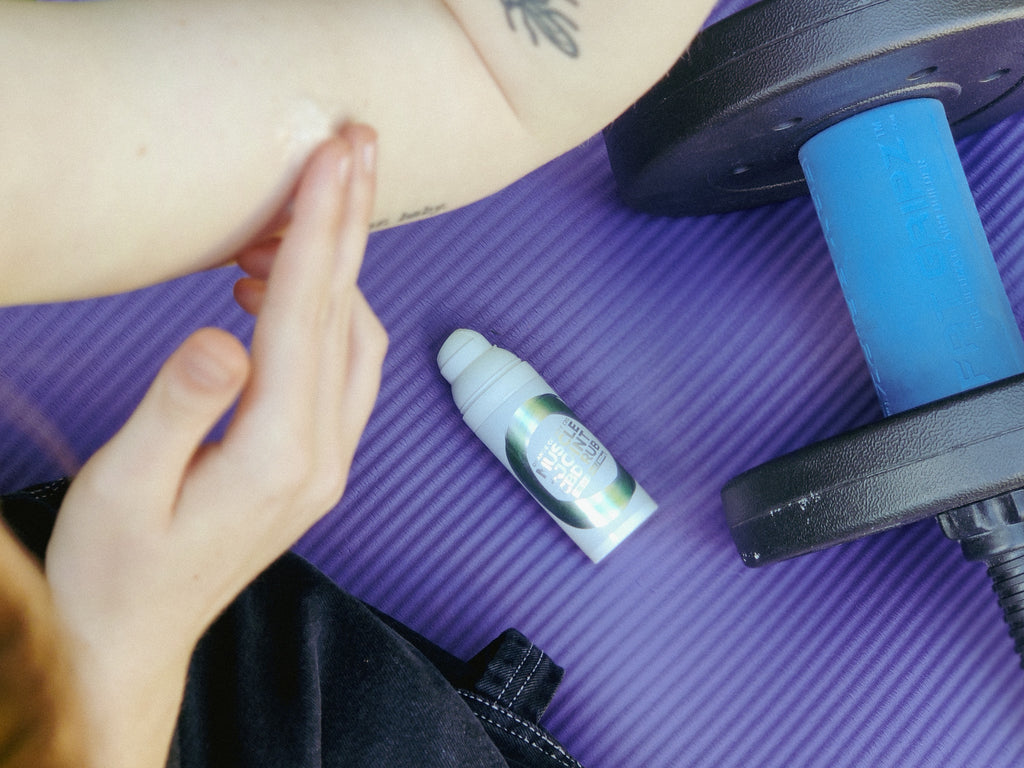7 Easy Ways To Naturally Reduce Stress



Recent times have been tough on lots of us, with significant increases in rates of anxiety and depression reported in the UK since the start of the COVID-19 pandemic - so there's no surprise that people are looking for easy ways to naturally reduce their stress levels.
Even in more normal circumstances, lots of people experience stress as part of their lives, with a 2018 study showing that 74% of UK adults felt overwhelming stress at some point.
Stress might sometimes be an unavoidable part of life, but how we deal with it can make a huge difference to our physical and mental health over time.
We’ve compiled some of the easiest and most effective natural ways to reduce stress levels in your life.
Table of Contents
Exercise To Feel Good
Physical activity and exertion are proven to help reduce stress because they can lower the body’s stress hormones, like cortisol, and at the same time release endorphins -those chemicals in the brain that act a bit like natural painkillers and mood-improvers.
Regular exercise can also help you sleep more deeply and for longer, something that is also known to improve stress levels.
Exercise can come more naturally to some people than others, but if you’re not currently living a very active lifestyle, the good news is that even moderate exercise can be beneficial when it comes to helping reduce stress.
Just going for a daily walk can make a big difference. Finding a form of regular exercise that is sustainable for you is important. That could be walking, running, swimming or going to the gym, or it might be something like yoga, dancing or even rock climbing, horse riding or trampolining.

Listen To Music To Relax
Remember that positive feeling when a song that you love comes on the radio? That’s no fluke – because music is a proven stress-reliever and mood improver.
Taking time out of your day to listen to music for even a few minutes, putting aside everything else for a little while, can be very beneficial if you’re feeling stressed.
The type of music that will help you chill out does vary from person to person, but tunes with a slower tempo can help relax your muscles and quieten your mind.
Some people swear by listening to classical music or light jazz, but for others that could be their worst nightmare – and forcing yourself to listen to music you don’t like isn’t going to be helpful for de-stressing.
If you use Spotify, there are hundreds of playlists already in existence that you can try out if you want to find something that works for your stress levels, such as those on their "Chill" page.

Try CBD Products To Combat Stress
Many people find CBD beneficial for their general lifestyle, the most popular reasons being:
- Its ability to aid relaxation after stressful days or experiences
- It helps to support a good sleep wake cycle
- It generally supports their mood
All of these things can contribute to managing stress levels.
If you’re new to CBD, you might want to start with CBD gummies, CBD edibles or a topical CBD muscle rub, which can help you relax after exercise.
You can also take CBD oil in drops under the tongue or by adding it to your favourite drinks or food.
Using some of these tips or techniques to help reduce your stress levels can be transformative in lots of areas of your life. Research shows that lowering stress can result in benefits including:
- Better sleep
- Better control of your weight
- Less frequent illness and quicker recovery times if you do become ill
- Improved mood
- More positivity in relationships with family and friends

Eat A Moderate & Balanced Diet
The links between food and stress are many, and it can work both ways. If you’re feeling stressed, you’re more likely to eat a higher proportion of unhealthy foods, and if you’re eating a lot of unhealthy things, you’re more likely to feel stressed.
Some people respond to stress by losing their appetite altogether, which can also be very detrimental as your body isn’t getting the right nutrients to get back to that healthy balance.
Being aware of how stress affects your relationship with food can be key to giving you control again. It is possible to use what you eat to reduce stress instead.
It’s important to eat regularly in order to keep your blood glucose at the level that your body needs to function optimally, so skipping meals can be very detrimental to your stress levels.
Ensuring that you eat regular, healthy and balanced meals is a good way to make sure your diet isn’t making you more stressed. That doesn’t mean that you can’t ever eat chocolate again though (thankfully) because studies have found that eating a small amount of chocolate with a high ratio of cocoa can actually help reduce stress. Winner!
Most foods are absolutely fine to eat in moderation and as part of a balanced diet, so it’s a matter of finding what works best for you. For an extra relaxing kick, add a little CBD oil into your favourite food or drink.

Reduce Your Daily Caffeine Intake
The effect caffeine has on your body will vary from person to person, but it is known to sometimes increase the levels of stress hormones in the body (cortisol and epinephrine). Reducing your daily intake can help to have a positive impact on how stressed you feel.
Taking away all coffee from some people could be risky 😉 but keeping caffeine to a moderate level could help e.g. no more than three-four cups of coffee a day. Your average cup of tea has roughly half the amount of caffeine per cup as coffee, and fruit teas are usually caffeine-free.

Take Steps To Improve Your Sleep Quality
As mentioned earlier, there are known links between poor sleep and high stress levels and it can easily become a cycle, where the more stressed you feel, the worse you sleep, making you even more stressed.
Lots of people who have sleep disorders don’t realise that this is why their sleep is poor, so it’s always worth speaking with your GP if you have serious sleep issues. For those who don’t have a sleeping disorder these easy steps can help improve the quality of their sleep, which can in turn help to reduce their stress levels.
- Go to bed at the same time every evening and try to wake up at the same time the next morning to help train your brain to recognise when it should be sleeping
- Try to avoid screen use for at least 30 minutes before you try to sleep
- Ensure your bedroom is a good temperature for sleep, usually around 18-19 degrees Celsius
- Use blackout curtains or blinds to stop light from waking you up
- Introduce a relaxing bedtime routine such as a bath or shower, listening to an audiobook or podcast, writing things down in a journal etc. If you do the same thing every evening, it can train your brain to start feeling sleepy at the right time

Practice Mindfulness
Mindfulness is being aware of what is going on with your senses, your thoughts and feelings in that exact moment, and putting aside distractions. There are proven links between mindfulness, or practicing mindfulness meditation, and reductions in stress.
There are several reasons for this, which include being able to take a step back from thoughts and see them in a wider context, so that you don’t find them as stressful anymore.
Mindfulness is also thought to help with focus, which can reduce the stress response and overall can change the way that you view and respond to stress – helping to turn it into a more positive thing for your mind and body.

